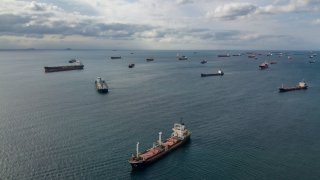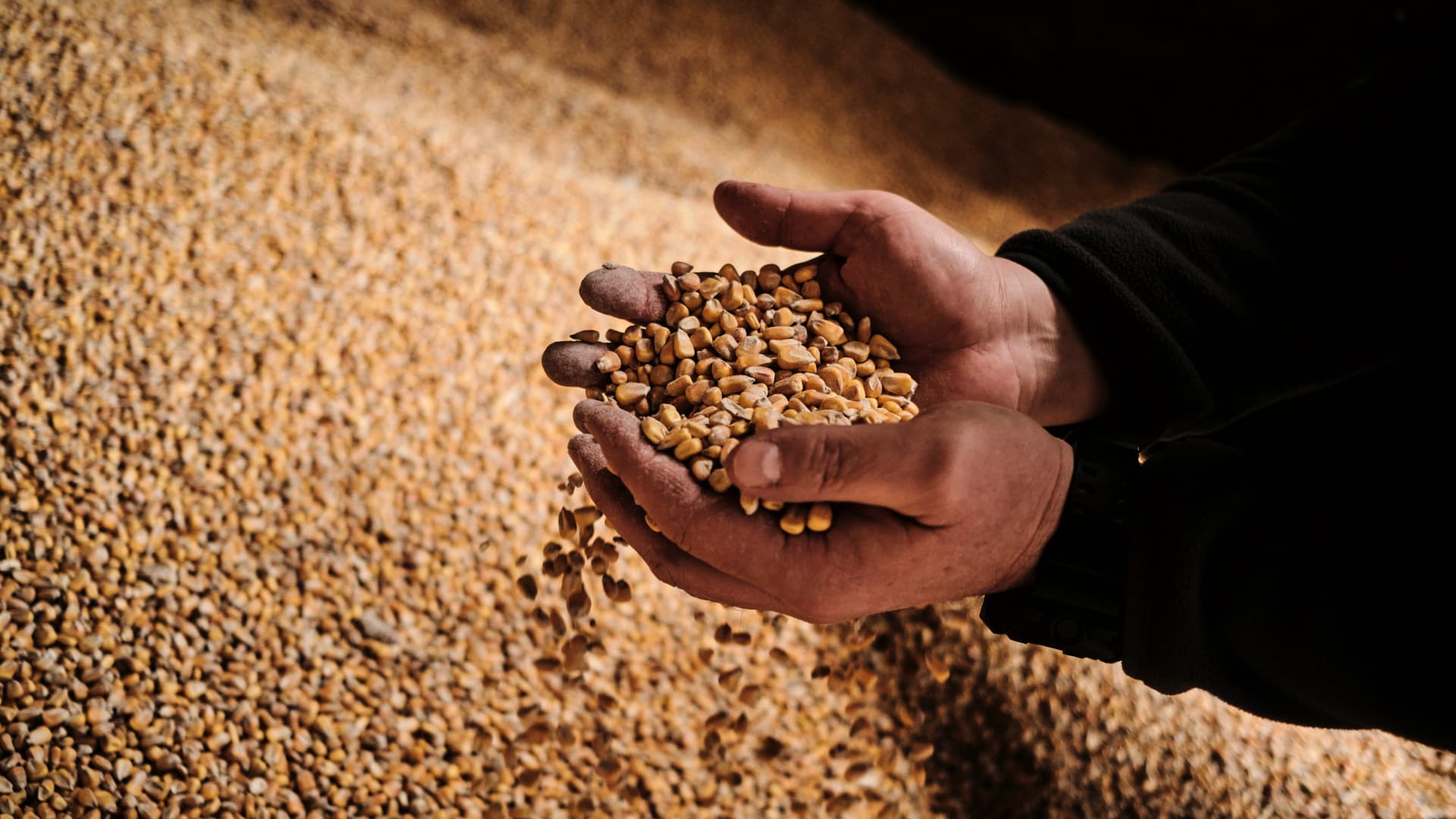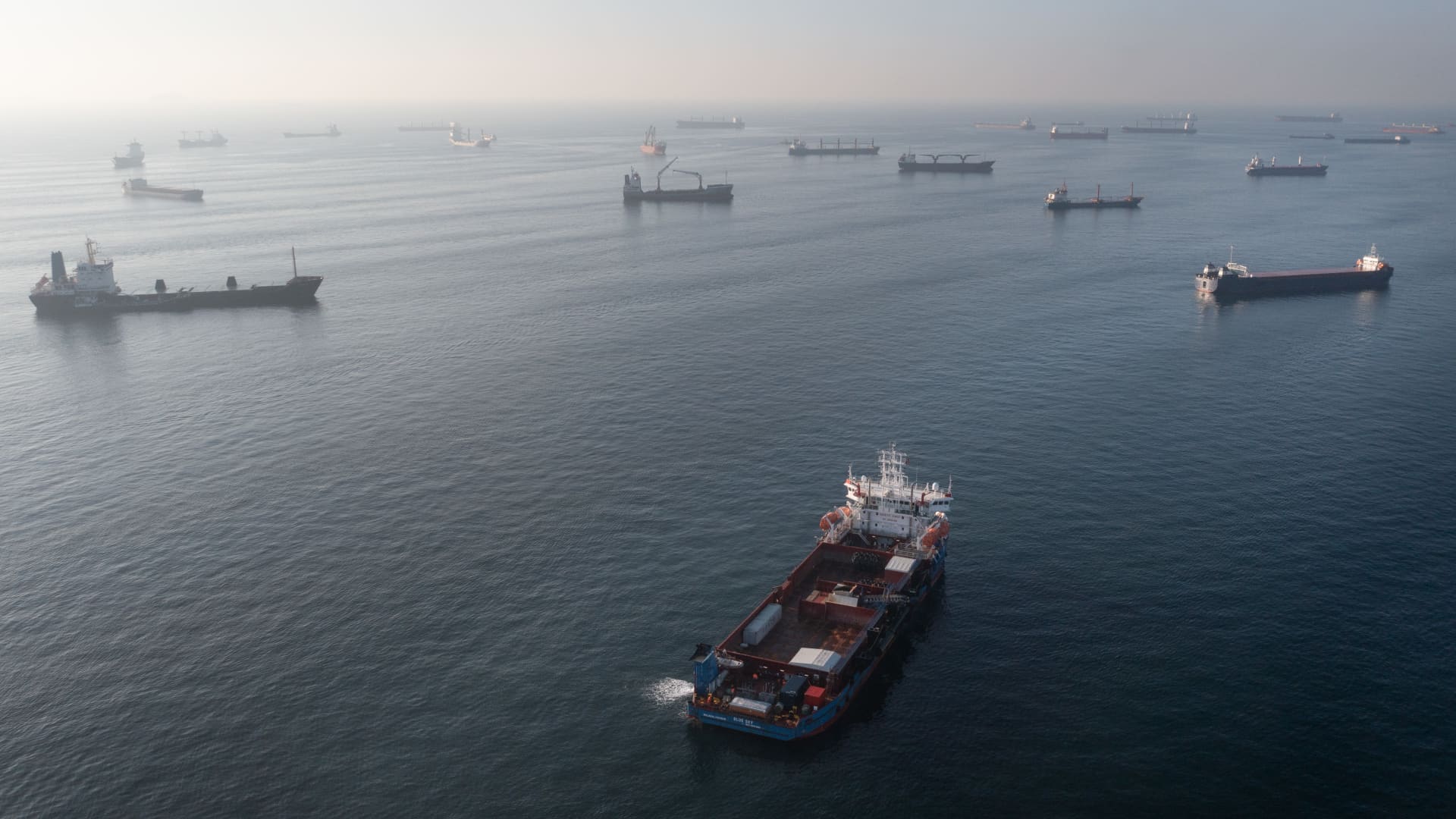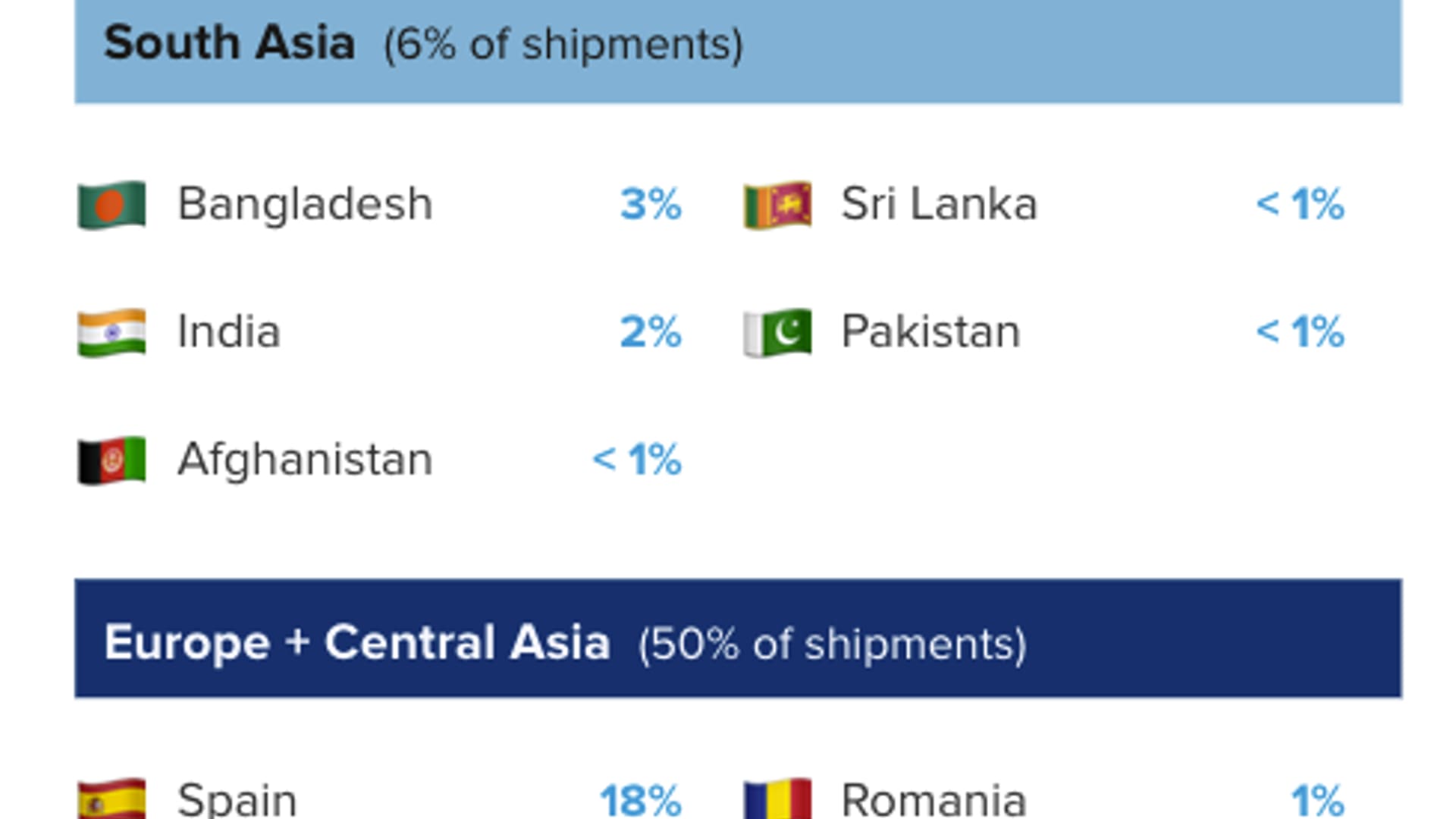
- Russian Foreign Minister Sergey Lavrov on Tuesday renewed threats of abandoning the Black Sea Grain Initiative, an agreement that allows the safe wartime export of agricultural products from besieged Ukrainian ports.
- Before Russian troops poured over Ukraine's borders, Kyiv and Moscow accounted for almost a quarter of global grain exports.
- Under the deal, more than 900 ships carrying nearly 29 million metric tons of agricultural products have departed from Ukraine's war-weary ports.

UNITED NATIONS – The basic food security of tens of millions across the globe is hanging by a thread as Russia mulls whether it will preserve a deal that has permitted Ukrainian grain to move through the Black Sea.
Russian Foreign Minister Sergey Lavrov on Tuesday renewed threats of abandoning the Black Sea Grain Initiative, an agreement that allows the safe wartime export of agricultural products from besieged Ukrainian ports.
Get San Diego local news, weather forecasts, sports and lifestyle stories to your inbox. Sign up for NBC San Diego newsletters.
Lavrov told reporters at the U.N. that one of Moscow's demands is for the Russian Agricultural Bank, or Rosselkhozbank, to return to the SWIFT banking system.
Two days after Russia launched its full-scale invasion of Ukraine, the U.S., European allies and Canada moved to block key Russian banks from the interbank messaging system, SWIFT.
Moscow's exclusion from SWIFT, which stands for the Society for Worldwide Interbank Financial Telecommunication, severed the country from much of the global financial system.
Money Report
Lavrov also said that the deal is currently one-sided since Russian fertilizers have not been able to transit the same way Ukrainian grain has.
"It was not called the grain deal it was called the Black Sea Initiative and in the text itself the agreement stated that this applies to the expansion of opportunities to export grain and fertilizer," Lavrov told reporters during a press conference.
"That's not the deal we agreed to on July 22," he added. Lavrov said there are dozens of Russian cargo vessels carrying some 200,000 tons of fertilizer stuck at European ports.

Considerations to renew the deal, which Moscow says could expire on May 18, were detailed in a letter from U.N. Secretary-General Antonio Guterres to Russian President Vladimir Putin. Guterres passed the letter to Lavrov, who flew from Moscow to New York to preside over the Security Council, during a bilateral meeting on Monday.
Lavrov declined to discuss the contents of the letter but said that a copy was also sent to Ukraine and Turkey, the other two signatories of the deal.
Before Russian troops poured over Ukraine's borders last February, Ukraine and Russia accounted for almost a quarter of global grain exports. Those shipments came to a severe halt for nearly six months until representatives from Ukraine, Russia, the U.N. and Turkey agreed to establish a humanitarian sea corridor.
The Black Sea Grain Initiative eased Russia's naval blockade and saw the reopening of three key Ukrainian ports.
Since then, more than 900 ships carrying nearly 29 million metric tons of agricultural products have departed from Ukraine's war-weary ports.







